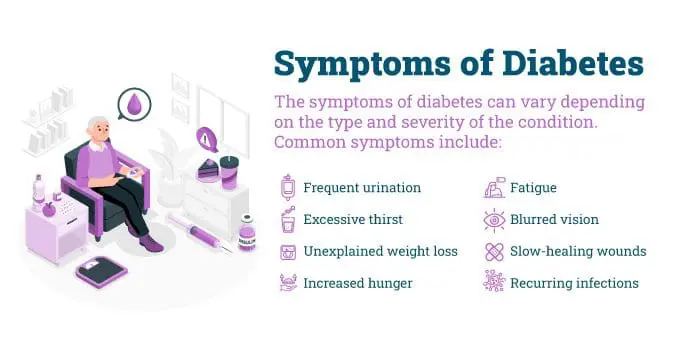Diabetes Wellness: A Holistic Approach

In today’s fast-paced world, maintaining our health is paramount. One health condition that is becoming increasingly prevalent is diabetes. This chronic disease affects millions of people worldwide and can have a significant impact on their quality of life.
In this comprehensive article, we will delve into the various facets of diabetes, from its causes and symptoms to the most effective treatment options available. We will also explore practical lifestyle changes that can help you better manage your diabetes and enhance your overall well-being.
What is diabetes?
Diabetes is a chronic condition that affects the body’s ability to regulate blood sugar levels. When we consume food, it is broken down into glucose, which is used by our cells as a source of energy. Insulin, a hormone produced by the pancreas, helps transport glucose from the bloodstream into the cells. In people with diabetes, the body either does not produce enough insulin or cannot effectively use the insulin it produces.
There are three main types of diabetes:
- Type 1 diabetes is an autoimmune disease in which the body’s immune system mistakenly attacks and destroys the insulin-producing cells in the pancreas.
- Type 2 diabetes is the most common type and occurs when the body becomes resistant to insulin or does not produce enough insulin.
- Gestational diabetes develops during pregnancy and usually resolves after childbirth.
Causes and risk factors of diabetes
The exact causes of diabetes are not fully understood, but several factors can increase the risk of developing the condition.
- Type 1 diabetes: genetics and certain environmental triggers, such as viral infections, may play a role.
- Type 2 diabetes: is strongly associated with lifestyle factors, including obesity, physical inactivity, and an unhealthy diet.
Other risk factors include family history, age, ethnicity, and certain medical conditions, such as high blood pressure.
Diagnosing diabetes
Diagnosing diabetes involves various tests to measure blood sugar levels. The most common diagnostic test is the fasting plasma glucose (FPG) test, which measures blood sugar levels after fasting for at least eight hours.
Another test is the oral glucose tolerance test (OGTT), which measures blood sugar levels before and two hours after consuming a glucose-rich drink.
Haemoglobin A1C (HbA1C) test is also used to determine long-term blood sugar control. If the results of these tests indicate high blood sugar levels, further testing may be done to confirm the diagnosis.
Managing diabetes through lifestyle changes
Managing diabetes effectively often requires making significant lifestyle changes. These changes may include:
- Adopting a healthy diet
- Engaging in regular physical activity
- Maintaining a healthy weight
- Managing stress
A well-balanced diet for diabetes should consist of whole grains, lean proteins, fruits, vegetables, and healthy fats. Portion control and carbohydrate counting can also help regulate blood sugar levels. Regular exercise can help improve insulin sensitivity, lower blood sugar levels, and promote overall well-being.
It is important to consult with a healthcare professional or a registered dietitian to create an individualized plan that suits your needs.
Medications and treatments for diabetes
In addition to lifestyle changes, medications are often prescribed to manage diabetes.
Type 1 diabetes, insulin therapy is essential, as the body does not produce any insulin. Insulin can be administered through injections or an insulin pump.
Type 2 diabetes, oral medications, injectable medications, or a combination of both may be prescribed to help control blood sugar levels.
These medications work by increasing insulin production, improving insulin sensitivity, or reducing glucose production in the liver. It is crucial to follow the prescribed medication regimen and regularly monitor blood sugar levels to ensure optimal control of diabetes.
Prevention and complications of diabetes
While some risk factors for diabetes, such as family history and age, cannot be changed, there are steps you can take to reduce your risk or delay the onset of type 2 diabetes.
- Maintaining a healthy weight
- Engaging in regular physical activity
- Adopting a balanced diet,
- Limiting alcohol consumption
- Avoiding smoking
It is also essential to regularly monitor blood sugar levels, undergo regular check-ups, and manage other medical conditions to prevent or minimize complications associated with diabetes.
In conclusion, diabetes is a chronic condition that requires lifelong management. By understanding the various aspects of diabetes, adopting healthy lifestyle changes, following prescribed medication regimens, and seeking regular medical care, individuals with diabetes can effectively manage their condition and lead fulfilling lives. Remember, you are not alone in this journey. Goodlife is here to provide you with the resources, support, and expert advice you need to manage your diabetes and live your best life.
